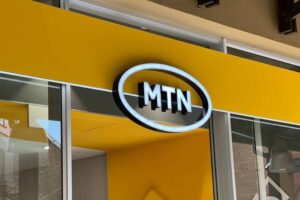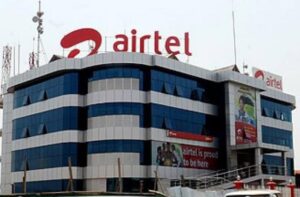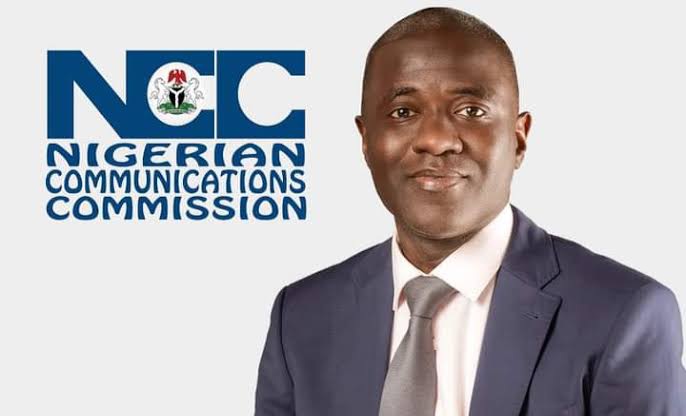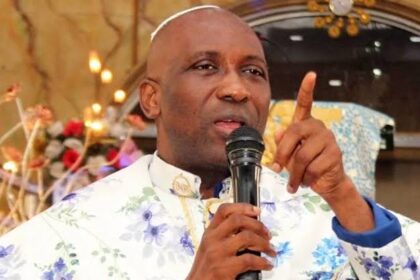The telecommunications sector in Nigeria is currently at risk of potential disruptions as major telecom operators have threatened to implement load-shedding measures. This action is in response to the Nigerian Communications Commission’s (NCC) perceived reluctance to address their demands for a tariff hike.
Telecommunication service providers, citing escalating operational costs attributed to the surge in diesel prices, infrastructure maintenance expenses, and the devaluation of the local currency, have urged the Nigerian Communications Commission (NCC) to consider approving a tariff adjustment. This request aims to alleviate the financial challenges they currently encounter.
In December 2023, MTN, a telecommunications company, with a subscriber base of 79.7 million, disclosed its first loss after tax since its 2019 listing on the Nigerian Stock Exchange. The reported loss amounted to N137 billion. Furthermore, the company suffered foreign exchange losses of N740 billion, equivalent to $815.79 million at an exchange rate of N907.1 to the US dollar.
As of March 2024, Airtel Africa had 50.9 million subscribers in Nigeria. The company reported a loss after tax of $89 million for its full year ending in March 2024. This loss was mainly attributed to foreign exchange (FX) challenges in Nigeria and Malawi. Airtel Africa incurred significant losses of $1.26 billion due to derivative and FX exposures, with $770 million specifically linked to the devaluation of the naira.
The depreciation of the Naira, plummeting from N420 per dollar to N760 per dollar within a month and further to approximately N1500 per dollar at present, has significantly impacted the telecommunications industry.…CONTINUE READING


This depreciation has resulted in reduced investments in the sector, as highlighted by Carl Cruz, the chief executive officer of Airtel Nigeria. Cruz emphasized that the telecoms industry heavily relies on the importation of infrastructure for its growth, making it particularly vulnerable to currency devaluation.
In a similar context, Karl Toriola, the Chief Executive Officer of MTN Nigeria, expressed that operators exhibit hesitance in making investments due to the substantial operating costs and the depreciation of the naira. These factors, among others, have adversely impacted the growth of the sector.
Per his statement, the telecommunications industry in Nigeria is currently experiencing severe challenges and is in dire need of government intervention to prevent further deterioration. The industry is confronted with various difficulties, and without prompt action, it is at risk of collapse.
Addressing the fundamental issues is imperative to attract potential investors to the sector. To safeguard the industry from imminent failure, it is recommended to consider increasing the prices of telecommunications services.
Despite repeated pleas, the regulatory body has remained silent on the issue, causing frustration and uncertainty among industry players.
The situation has escalated, with telecom operators warning that if the tariff hike is not granted, they may be forced to adopt load shedding—a strategy that would involve rationing network availability during certain periods. This could lead to disruptions in mobile and internet services, affecting millions of Nigerians who rely on these services for communication, business, and access to essential information.
“With the high operating cost and the delay on the part of the government to allow operators to increase prices of telecoms services, operators may adopt the method of load shedding in the sector.
“We may decide to give network to some areas, while others may not have network, just to cut down operating cost for the survival of the industry,” chairman, Association of Licensed Telecom Operators of Nigeria (ALTON), Engr. Gbenga Adebayo told our correspondent.
Regrettably, the NCC has not issued an official statement in response to the operators’ requests or the potential service disruptions. According to a source within the Commission, the NCC has chosen not to provide any comments on the matter.
The reason for the Nigerian Communications Commission’s (NCC) silence can be attributed to the complex nature of the situation, as articulated by Jide Awe, the chief executive officer of Jidaw Systems Limited. He stated that there are no straightforward solutions to the challenges faced by the telecom sector.
Resolving these issues necessitates a delicate balance, as the sector is currently grappling with rising operational costs while also considering the potential impact on consumers if the NCC were to concede.
“The operators argue with good reason that without increased tariffs, they may find it difficult to maintain service quality, sustain their infrastructure, invest in new technologies, or even remain financially viable.
“On the other hand, Nigerians are already under considerable financial strain due to the rising cost of living. Any increase in telecom tariffs could worsen this situation, making it more difficult for individuals and businesses to afford essential communication services.”
He emphasized the importance of taking into account the socio-economic impact on citizens while acknowledging the concerns of telecom operators. He suggested that the NCC should strive to strike a balance between supporting the growth and sustainability of the telecom sector and addressing the economic realities faced by Nigerian consumers.
In the meantime, NIGCOMSAT Limited from Nigeria is looking to collaborate with operators to reduce the need for dollars to acquire infrastructure.
The head, marketing and stakeholders’ engagement, NIGCOMSAT, Olufunke Fagbeja, disclosed this, during an interview with journalists, at the KA-band VSAT Installation training in Lagos.
According to her, NIGCOMSAT believes in strategic partnerships, adding that, “We believe in partnering with telecom operators to deliver service and to deliver value to Nigerians. When we talk about the regulator, we are under one umbrella, which is the Ministry of Communications, Innovation and Digital Economy. However, as much as we are open to strategic partnerships, of course, it depends on the other party too.
“We are taking steps to ensure or to foster this partnership. For example, we have been having talks with some operators in terms of strategic partnerships. So, this is something we’re working on and we believe it will bear fruit and we will see the value with regards to services.”
Speaking on easy access to telecom equipment, Fagbeja said, though NIGCOMSAT is not an Original Equipment Manufacturer (OEM) as it does not manufacture equipment, it has entered into partnership with manufacturers of some of the equipment needed in the telecom industry.
“We partner with these manufacturers and we purchase our equipment directly from them. What this means is that we can get the equipment at a better rate, at a discounted rate, to give to our customers like operators. So we can assist operators to get the equipment (at a much reduced price) needed to expand their operation in the country.
“We are also looking at producing some of the equipment locally, by empowering startups through the Accelerator programme. The programme is aimed at propelling advancements in satellite technology and bolster Nigeria’s position in the global tech arena,” she added.




